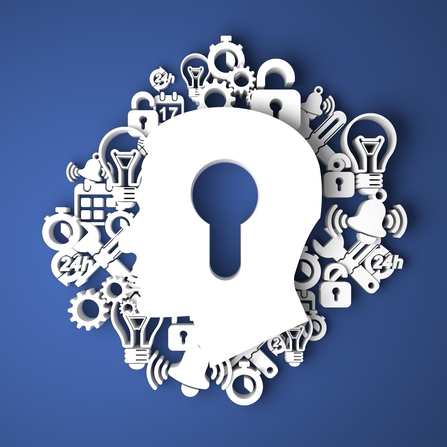As human beings, we are complex creatures. In our lives, over a period of time we develop many beliefs. Some serve us, most limit us.
How beliefs shape your life
You take decisions everyday, consciously and subconsciously. Decisions at home, at work, out in public, small, big, important, not so important, trivial, proactive and reactive decisions, you are taking them all the time.
These decisions are based on choices you make. From the kind of food you want to eat to the dress you wish to wear, music you want to listen to, programs you want to watch, places you want to go, people you want to meet, people you don’t want to meet, goals you wish to pursue, goals that you give up on, actions you plan to take, actions you will postpone, Choices choices and more choices.
Do you agree?
Now these choices are based on how you feel at that moment, It could be a feeling of being happy, charged up, excited, maybe calm and inner peace or it could be something not so pleasant, like sadness, hurt, anger, guilt or shame. No matter the feeling, it has an impact on your choice.
Feelings are driven by your thoughts. You think a certain thought, positive or negative, inspiring or demotivating, bright, happy thoughts or thoughts of despair and fear and they in turn create the appropriate feeling within you.
Now you might be wondering as to where do these thoughts come from?
Your thoughts are a result of your attitude in life. Your general outlook, your view of the world, how you approach each and everyday.
A good attitude will mean you are mostly filled with empowering, positive and encouraging thoughts while a poor outlook or attitude in life will see you struggling with negativity, despair, disillusionment…
And what do you think shapes your attitude in life?
…. your beliefs
Yes, your underlying beliefs shape your attitude which in turn determine your thoughts and those thoughts create feelings that drive you to make choices leading to decisions which get you the results you currently have.
What are beliefs
Your belief system is your code, its an agreement with yourself, as author, Don Miguel Ruiz puts it in his wonderful book ‘The Four Agreements’, its the process of domestication which continues even when you grow up.
Beliefs are powerful. They are you and yet you may never recognize them.
You may have heard or read about the iceberg theory. Your actions and behavior are like the visible portion of an Iceberg floating on the surface. Your underlying beliefs are like the large, invisible portion that is submerged below. You don’t see it, however, it exists just the same and impacts you.
The quick-fix syndrome
Have you ever tried hard to change you thinking and not had much success?
Have you been told to think positive and it did nothing to improve your life?
This is mostly likely because you have been trying to fix the wrong element. You must first become aware of your unwanted behavior and the beliefs driving that behavior, next you must work to replace the limiting ones. Doing so will help you develop a healthier, positive attitude which in turn improves the quality of your thinking.
Start by changing your behavior and the beliefs behind it, not your thinking.
Why do you need beliefs
They are powerful, they are your reality. They give a sense of meaning to everything in around you. They are your map to this world. Without them you would be lost, not be able to recognize, judge, accept, adopt anything as you just cannot recognize it.
Your beliefs shape your behavior and actions. They can inspire you, pull you down, make you grow, limit you.
How they impact you
In my coaching work, one of the first things I ask my clients is what’s working in their life, they usually begin by mentioning couple of positive developments and then unknowingly drift into narrating everything thats not ok, how they are failing, what they feel is lacking in them, how they can’t seem to do anything right etc.
After a few minutes of when gently reminded of the actual question, they come back on track, share more wonderful things and then slip back yet again into talking about what they feel they don’t deserve, how they will be laughed at, why they will not achieve something ….
These, are probably underlying beliefs speaking. These are a lifetime of negative mind chatter, conditioning coming to the fore.
This is not who they are. This is who they believe they are.
If some of your behaviors, actions are in contrast to your conscious thinking, its probably because there are some strong beliefs driving them and you may be committed to those more than you are to the ones you wish to have. Becoming aware is an important step in working towards achieving your goals.
Common beliefs
Dr Lee Pulos, Ph.D, ABBP in his insightful book ‘The Biology of empowerment’ says we acquire most of our beliefs between the ages of 2 and 12 years as we are are highly suggestible then. Your beliefs come to you from your parents, your teachers and your culture.
Let’s look at some common beliefs that exist in our society :
1. You must work hard to succeed
2. Money does not come easy
3. The world is a tough place
4. Never trust strangers
5. Good people finish last
And here are five limiting ones that you might have
1. I am not good enough
2. I will be laughed at
3. I don’t deserve it
4. I will look foolish
5. What if I fail?
Beliefs by themselves do not hold you back, its your unwillingness to change that stops you from living to your true potential.
Replacing limiting beliefs
Having looked at what beliefs are and how they impact you, its important to understand the process of replacing the limiting ones.
Changing your beliefs is not always simple, easy or quick. Deep rooted ones need time and effort to be let go as initially you may not even be able to recognize or identify them. A lifetime of conditioning sometimes makes it difficult to switch from one to another even if you know the new one is better for you.
Awareness is key to achieving anything in life. Its an inner journey to understand who you are and what makes you succeed. Greater the level of self awareness, easier it will be to identify beliefs that help you grow and those that limit you.
Change the filters to change the printout. Break the cultural and personal belief trances that are not working for you~ Dr Lee Pulos, Ph.D, ABPP, The Biology of Empowerment
Here are seven steps to replace beliefs that don’t serve you:
1. Identify actions and behaviors that you are not happy with
2. Become aware of beliefs that might be driving this behavior
3. Question it, challenge it, check if its based on facts or just assumptions
4. Next decide on the new actions, behaviors that you wish to have
5. Find an empowering belief that will support these behaviors
6. Practice the new behavior, repeat it, adopt, encourage, internalize, live it
7. Keep track, check progress, continue to focus on the new behavior
‘An old belief is like an old shoe. We so value it’s comfort that we fail to notice the hole in it.’ ~ Robert Brault
What else can be done to help replace limiting beliefs?
I look forward to your valuable inputs.
Points to ponder
What are some actions, behaviors you no longer wish to have in your life?
What beliefs, opinions could you be reinforcing by constantly repeating these behaviors?
What new behaviors would you like to have instead?
Which new strong beliefs would help you achieve these behaviors?
Who can help you?
Recommended reading
The Biology of Empowerment – Dr Lee Pulos
The Biology of Belief – Bruce. H. Lipton
The Four Agreements – Don Miguel Luiz




 What You Should Know About Stress Management
What You Should Know About Stress Management
Leave a Reply